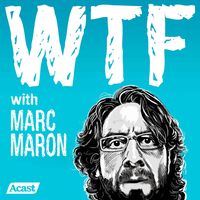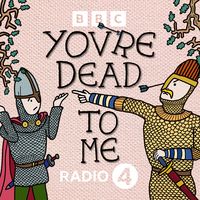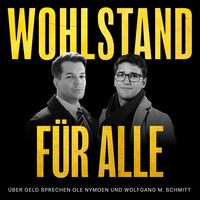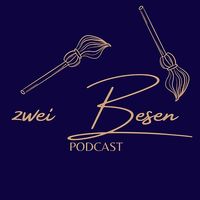The Cold War, Prohibition, the Gold Rush, the Space Race. Every part of your life - the words you speak, the ideas you share - can be traced to our history, but how well do you really know the stories that made America? We'll take you to the events, the times and the people that shaped our nation. And we'll show you how our history affected them, their families and affects you today. Hosted by Lindsay Graham (not the Senator). From Wondery, the network behind American Scandal, Tides of History, American Innovations and more.You can binge new seasons of American History Tellers early and ad-free on Wondery+. Join Wondery+ in the Wondery app or on Apple Podcasts.
https://wondery.com/shows/american-history-tellers/?utm_source=rss
Gesamtlänge aller Episoden: 9 days 9 hours 28 minutes
recommended podcasts
- season 1
- season 2
- season 3
- season 4
- season 5
- season 6
- season 7
- season 8
- season 9
- season 10
- season 11
- season 12
- season 13
- season 14
- season 15
- season 16
- season 17
- season 18
- season 19
- season 20
- season 21
- season 22
- season 23
- season 24
- season 25
- season 26
- season 27
- season 28
- season 29
- season 30
- season 31
- season 32
- season 33
- season 34
- season 35
- season 36
- season 37
- season 38
- season 39
- season 40
- season 41
- season 42
- season 43
- season 44
- season 45
- season 46
- season 48
- season 49
- season 50
- season 51
- season 52
- season 53
- season 54
- season 55
- season 56
- season 57
- season 58
- season 59
- season 60
- season 61
- season 62
- season 63
- season 64
- season 65
- season 66
- season 67
- all
- 1
- 1
episode 1: The Cold War - An Ideological War
For nearly 50 years, the United States and Soviet Union waged a global war of ideas fueled by politics, intrigue, and nuclear weapons. But how did the polarized ideologies of these two global powers threaten the existence of the entire world? This is Episode 1 of a six-part series on the Cold War. We’ll discover how the United States’ suspicion of communism not only led to a global stand-off, but threatened the freedom and democracy Americans so cherished at home...
episode 2: The Cold War - Hearts and Minds
Forget trenches, infantry and tanks. The United States and Soviet Union fought the Cold War with ideas and information. Episode 2 describes the cunning of Soviet propaganda campaigns. The United States adapted those techniques for their own purposes, broadcasting an image of the nation as a beacon of hope and freedom through covert ops and jazz concerts alike - even if those at home were hurting or oppressed...
episode 3: The Cold War - Nuclear Fear
What is the United States to do when direct conflict with the Soviet Union promises almost certain annihilation? They turned to proxy wars and psychological warfare with the threat of nuclear weapons keeping both countries in check. Ever wondered how an atom bomb works? We’ll cover it in Episode 3 including the scientific concepts, the arms race and the problem of ensuring complete and absolute control over these weapons...
episode 4: The Cold War - The Nature of Risk
Americans were desperate to find hope in the shadow of the bomb. Miracle cures, cheap energy, and even brand new atomic gardens: the wonders of the atom were ours to discover! Right? Eager to explore nuclear explosions for peaceful purposes, Americans instead found the resulting radioactive fallout too dangerous. In Episode 4, we’ll talk about swim wear, baby teeth, and how America just couldn’t get friendly with the atom...
episode 5: The Cold War - The Long 1960s
America sent a man to the moon in 1969, and with Neil Armstrong’s first steps, the United States projected to the world an image of American power, wealth and achievement. But it was hardly just for bragging rights. The space race started under Kennedy to compete with the Soviets on a global stage, but it was under Johnson that its goals became domestic...
episode 6: The Cold War - Last Man Standing
In the early 1970s, while trying to wind down the war in Vietnam, President Richard Nixon made overtures to Moscow and Beijing that would usher in a new era of the Cold War: Detente. But the thaw in relations didn’t last long - the Iran Hostage Crisis and Soviet invasion of Afghanistan set the old adversaries against each other once again...
episode 7: The Cold War - Interview with Audra Wolfe and Patrick Wyman
We’re closing out our series on the Cold War with two interviews with fascinating historians. First, we’re talking with Audra Wolfe, the author of Competing with the Soviets: Science, Technology, and the State in Cold War America, and the writer of this first six-part series of American History Tellers. Then, we take a seat in the way-back machine with Patrick Wyman, host of the hit podcasts Fall of Rome and Tides of History...
- 1
- 1








































